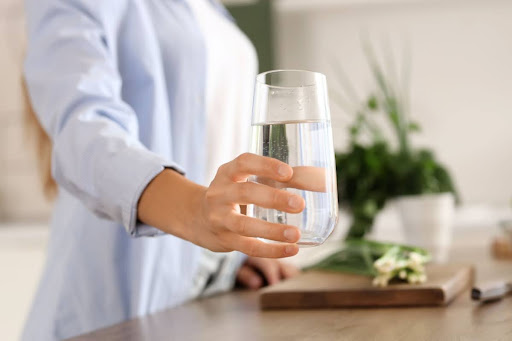You spend hours cleaning, decluttering, and maintaining your living space so that it can be a safe and pleasant place for everyone. You scrub the floors, dust the shelves, and organize the closets. But sometimes, despite all that effort, something tiny and invisible can sneak through — like impurities in your water. That’s why getting the right water filter matters.
Knowing how to choose the right water filter for your home is one of those decisions that can make a significant difference with minimal daily effort. Let’s break down the different types of filters, what to consider, and how to find the right fit for your family.
Why Water Filtration Is More Than Just a Convenience
Tap water might look clean, but it can carry all kinds of unwanted elements. Chlorine, lead, iron, sediment, and even bacteria can be hiding in plain sight. These contaminants can affect the taste and smell of your water and may also impact your health over time.
Getting a whole-house water filtration system can improve the quality of every drop that flows through your pipes. From your morning coffee to your evening shower, it's important to have access to clean water. Plus, filtering out things like hard minerals and sediment can extend the life of your appliances and prevent buildup inside your plumbing.
Step One: Understand What’s in Your Water
Before choosing a system, you’ll want to figure out what’s actually in your water. Start by doing a water test. You can buy a testing kit or have a professional come out to check your water quality. This will tell you if you’re dealing with issues like:
- High levels of chlorine or other disinfectants
- Hard water minerals like calcium and magnesium
- Metals such as lead, copper, or arsenic
- Sediment and rust from older pipes
- Bacteria, viruses, or parasites
- Pesticides or microplastics from agricultural runoff
Knowing what you're up against is the first step in deciding how to filter it out. This is one of the most important tips for choosing the right water filtration system for your home.
Step Two: Explore Your Filter Options
There are many kinds of water filters, and each serves a specific purpose. Here’s a closer look at the most common types.
Activated Carbon Filters
These are great at improving taste and removing chlorine, odors, and some organic chemicals. You’ll find them in pitchers, under-sink systems, and even some refrigerator filters. Activated carbon is a solid choice for everyday use and is often used in combination with other filtration methods.
Reverse Osmosis Systems
This type of system pushes water through a semipermeable membrane and can remove contaminants like fluoride, arsenic, nitrates, and even some viruses. Reverse osmosis is one of the most effective filtration methods available. It usually comes with a storage tank and is installed under the sink.
Sediment Filters
Designed to catch dirt, sand, and rust, these filters are often used as the first stage in a multi-filter system. If your water comes from a well or you’ve got older plumbing, this type can be helpful.
Ultraviolet (UV) Treatment
UV systems use light to kill bacteria and viruses. They are chemical-free and ideal for homes that rely on well water or deal with microbial contamination.
Ion Exchange and Water Softeners
If your water leaves spots on dishes or mineral buildup in your bathroom, a water softener can help. These systems swap calcium and magnesium for sodium or potassium to reduce hardness.
If your water problems extend throughout the house, it may be time to think about getting a whole-house water filtration system. These systems are installed at the point where water enters your home and treat all water used in your sinks, showers, toilets, and appliances.
Step Three: Tips for Choosing the Right Water Filtration System for Your Home
It’s easy to get lost in the details, but keeping a few things in mind can help you make the right call. Use these tips from this water filter buying guid
- Match the filter to the problem: If your water tastes bad, you might want to go with carbon filters. If you're dealing with heavy metals, reverse osmosis is probably your best bet. For hardness, consider ion exchange.
- Think about water flow: A small filter might not keep up with a busy household. If you have multiple bathrooms or a large family, a larger system may be needed to maintain good water pressure.
- Look at the maintenance involved: Some filters need new cartridges every few months. Others might only need attention once a year. Make sure to factor in the cost and time needed to keep your system running properly.
- Keep your budget in mind: A pitcher or countertop system might be affordable, but it won’t protect your plumbing or serve your whole home. Higher-end systems cost more upfront, but they offer broader benefits and long-term savings.
- Consider professional installation: Systems like reverse osmosis usually require plumbing work. If you need a trusted plumber in Harrisburg, PA, G.F. Bowman has the experience to get it done right.
- Think about space: Before buying, make sure you have room under the sink, beside the water heater, or wherever your system needs to go.
- Understand potential water waste: Some systems, like traditional reverse osmosis, waste water during filtration. If this is a concern, look for high-efficiency systems that minimize waste.
Taking time to follow these tips for choosing the right water filtration system for your home will save you from headaches later on.
Getting a Whole House Water Filtration System
If your water issues aren’t just limited to the kitchen sink, getting a whole-house water filtration system could be the right move. This kind of system treats all the water entering your home, offering protection for your pipes, appliances, and even your skin.
Imagine turning on the shower and not worrying about chlorine drying out your skin, or running the dishwasher without dealing with hard water spots. With a whole-house system, every faucet brings cleaner, better-tasting water.
It also cuts down on sediment buildup in pipes, rust staining, and other plumbing-related damage. These systems do require a bit of space and are usually installed where your main water line enters the home. This is where a pro like G.F. Bowman comes in handy.
Why Choose G.F. Bowman for Water Filtration?
If you're ready to invest in cleaner, healthier water, working with someone who knows the ins and outs of plumbing is key. At G.F. Bowman, we’ve been serving south-central Pennsylvania since 1967. Families trust us not just because we know water systems, but because we treat your home with the respect it deserves.
Remember, Every Home Has Unique Water Needs
Each household has different water challenges, so the right filtration system isn’t a one-size-fits-all decision. A solid water filter buying guide can help break down the options in a way that’s easy to follow. If you're dealing with chlorine, sediment, or heavy metals, using practical tips for choosing the right water filtration system for your home will help you focus on solutions that match your needs.
Take the First Step Toward Cleaner Water Today!
Choosing the right system might take some time, but it’s worth it. Cleaner water means a healthier home, better-tasting drinks, safer showers, and longer-lasting appliances. As you explore how to choose the right water filter for your home, keep the basics in mind: test your water, know your needs, and pick a system that fits your lifestyle.
If you’re looking for expert help in Central Pennsylvania, the team at G.F. Bowman is here for you. Contact us today to schedule your whole home water filtration services in Harrisburg, PA, or one of the surrounding areas!




 1..
1..
 2..
2..
 3..
3..
 4..
4..
 5..
5..
 6..
6..